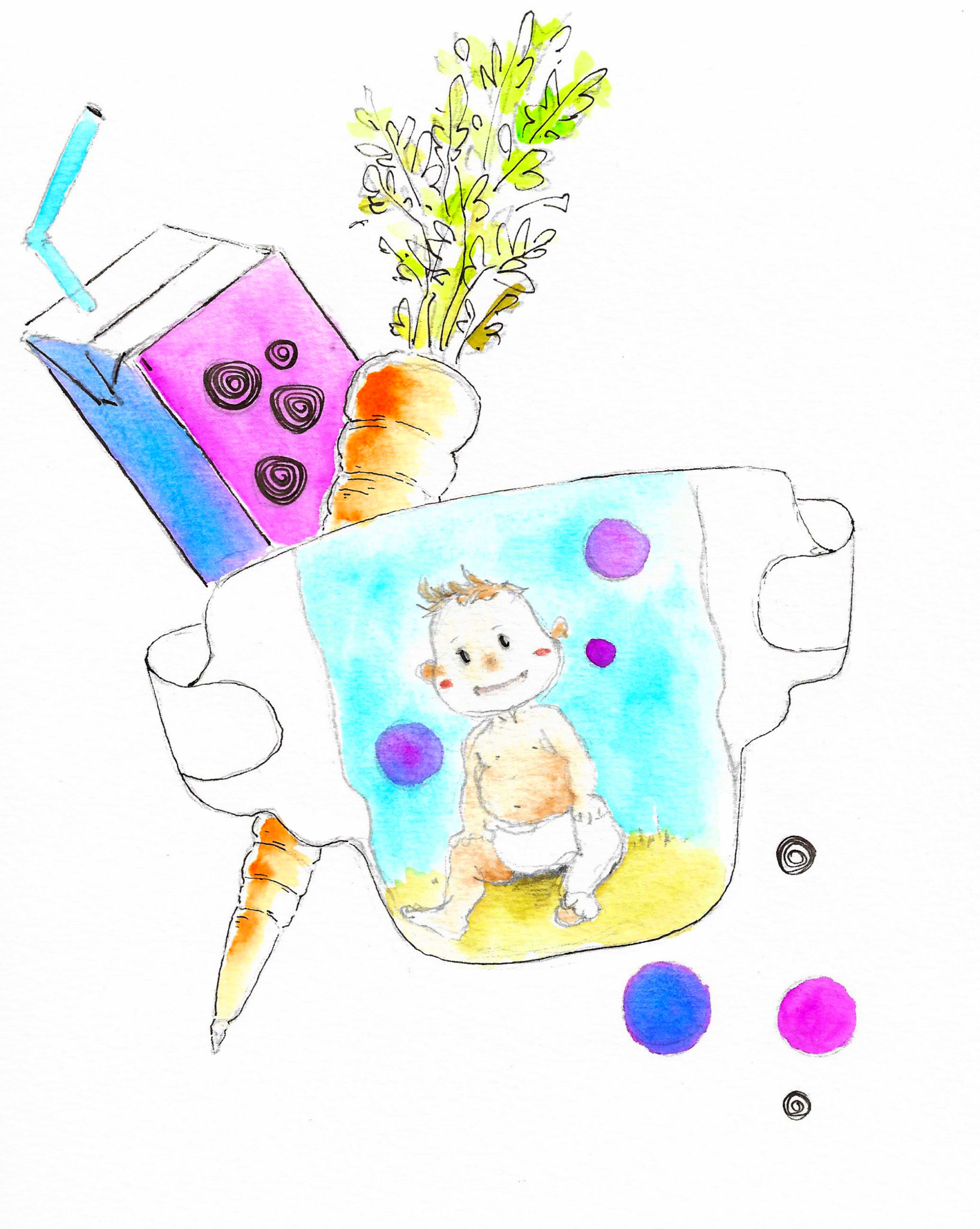
The only thing worse than dirty diapers? No diapers at all.
Researchers at the Yale School of Medicine have found a strong correlation between the diaper need of low-income mothers and the occurrence of maternal depression. According to their study, which was published in the journal Health Equity in September, diaper need — even more than food insufficiency — is a daily stressor that leads to maternal hardship and mental health struggles.
“Unlike food, there is currently no dedicated federal assistance to support the purchase of diapers,” said Anna Austin SPH ’13, co-author of the study. “Disposable diapers cost approximately $70–80 per month per child, which is a huge financial burden for many families.”
In the study, low-income mothers answered a series of questions related to their feelings and responses when confronted with diaper and food shortages. Researchers evaluated their depressive symptoms using the Center for Epidemiologic Studies Depression questionnaire, or CES-D, commonly used in psychological research.
“We wanted to think about measuring poverty in terms of the tangible deprivations and daily stressors associated with poverty — what are sometimes referred to as material hardships,” Austin said.
The sample group studied consisted mostly of low-income mothers, approximately 90 percent of whom had taken part in government nutrition-assistance programs. The study determined that the mothers who reported diaper need had a significantly higher CES-D score than women who did not report diaper need. Participants who reported food insufficiency, on the other hand, did not have significantly higher CES-D scores than those who had enough to eat. Approximately one third of mothers who reported diaper need did not report food insufficiency, the study found.
Austin said the researchers’ last finding suggests that diaper need represents a unique aspect of maternal hardship and a specific experience of poverty.
“There are no dedicated supports or safety nets in place to provide parents and caregivers with assistance meeting this basic need,” she added.
Few federal assistance programs assist low-income parents in covering the cost of diapers. According to Megan Smith SPH ’00, co-author of the study and director of the Mental Health Outreach for Mothers Partnership, or MOMS, the lack of funding stems from the stigma associated with being a low-income parent. While food insufficiency is widely discussed and successful programs have been put in place to address the issue, mothers who struggle to afford diapers are often overlooked. Little research has been done into diaper need, so this data has never been quantified before, Smith said.
The only federal diaper initiative in place is the National Diaper Bank Network. This nonprofit organization, a product of the Obama administration, distributes funds to community diaper banks that operate in conjunction with food banks, according to Smith. Though this diaper bank represents a positive step, she added, more federal and community programs are necessary to support the needs of these low-income mothers.
The researchers interviewed said they hope that the study will increase awareness about diaper need and the way it affects the mental health of mothers. According to Austin, several states have already attempted to pass legislation exempting diapers from the state sales tax or creating voucher programs to assist families in purchasing diapers.
Smith said she would like to see legislation to provide a diaper stipend for these families or even coverage within Medicaid that covers diapers as a durable medical good.
Connecticut has 10 diaper banks that distribute nearly two million diapers annually, according to the National Diaper Bank Network.
Madison Mahoney | madison.mahoney@yale.edu







